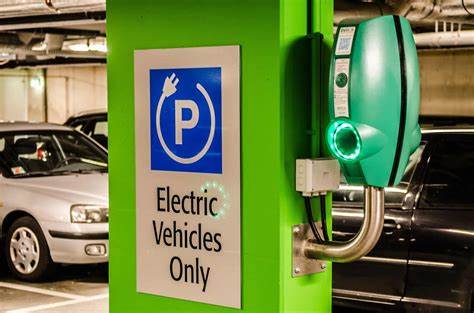The Presidential CNG Initiative (Pi-CNG) represents a bold and strategic effort by the administration of President Bola Ahmed Tinubu to transform Nigeria’s transportation sector. In response to the hardships brought about by the removal of fuel subsidies and the deregulation of the petroleum market, the initiative aims to provide a more sustainable, cost-effective, and environmentally friendly alternative to traditional fuel sources. This article delves into the objectives, components, and far-reaching implications of the Pi-CNG initiative, setting the stage for a new era in Nigerian transportation.
Objectives of the Pi-CNG Initiative
The Pi-CNG initiative is designed to address multiple critical areas, aiming for a holistic transformation of the transportation sector. The key objectives include the following:
- Significantly reduce transportation cost for Nigerians.
- Improve environmental quality by significantly lowering carbon emissions.
- Create job opportunities through the local production, conversion, and maintenance of CNG vehicles.
- Encourage investments in Nigeria’s abundant gas resources and related infrastructure to boost the economy.
Components of the Pi-CNG Initiative
The Pi-CNG initiative is structured around several key components that collectively ensure its successful implementation and widespread adoption. Unlike a pilot program, the Pi-CNG initiative is an immediate roll-out aimed at stimulating the rapid adoption of CNG across the nation. This approach ensures that the benefits of CNG utilization are realized quickly and on a large scale. The development of necessary infrastructure, including conversion facilities, CNG refueling stations, and maintenance facilities, is crucial to the success of this initiative.
To quickly address the struggle of Nigerians dues to PMs subsidy removal, Pi-CNG plans to deploy conversion kits, bio-fuel buses, CNG tricycles, and electric buses to cater to various transportation needs of Nigerians, from public transit to private use. In addition to vehicle deployment, the initiative will organize comprehensive training programs for capacity building, which is essential for the transition to CNG. This involves training drivers, mechanics, and other relevant personnel to ensure the smooth operation and maintenance of CNG vehicles.
Benefits of CNG and EV Adoption
The shift to CNG and electric vehicles offers numerous benefits that address both economic and environmental challenges.
Economic benefits include cost savings, cheaper transportation fares, local industry growth, and improved mobility. On the environmental front, the benefits range from lower carbon emissions, natural resource utilization, and meeting our climate commitments, such as the Nationally Determined Contributions (NDCs) made under the Paris Agreement.
Addressing the Challenges of Fuel Subsidy Removal
The removal of fuel subsidies have led to a significant increase in the price of petrol (PMS), posing economic challenges for many Nigerians. The Pi-CNG initiative directly addresses these challenges in several ways:
Providing a Cheaper Alternative
CNG is a more affordable fuel option compared to PMS. This initiative will Nigerians mitigate the impact of higher petrol prices, leading to reduced transportation costs and overall economic relief.
Stimulating Economic Activity
The development of CNG infrastructure and the local production of CNG vehicles create new economic opportunities. This includes job creation in various sectors, from manufacturing to vehicle maintenance, thereby boosting local economies and reducing unemployment.
Enhancing Energy Security
Utilizing Nigeria’s abundant natural gas reserves enhances the country’s energy security by reducing dependence on imported fuels. This not only stabilizes fuel prices but also ensures a more reliable and sustainable energy supply.
Promoting Sustainable Development
The shift to CNG and EVs supports sustainable development goals by reducing environmental pollution and fostering the use of cleaner energy sources. This contributes to a healthier environment and improved public health outcomes.
Possible EVS: Partnering for a Sustainable Future
Pi-CNG marks a significant step towards a more sustainable and economically resilient future for Nigeria. As an innovative, forward-thinking company, Possible EVS is dedicated to supporting this transition. What we have to offer?
- Comprehensive, end-to-end EV and CNG solutions.
- Extensive training programs for drivers and other operators.
- Ongoing support and consultation to help MDAs navigate the challenges of the transition.
- Advocacy efforts and public awareness campaigns to promote the advantages of sustainable transportation.
In addition to the above, Possible EVS is committed to offering the expertise, infrastructure, and support needed to make sustainable transportation a reality. Partner with us! Together, we can pave the way for a cleaner, more prosperous future for all Nigerians.


